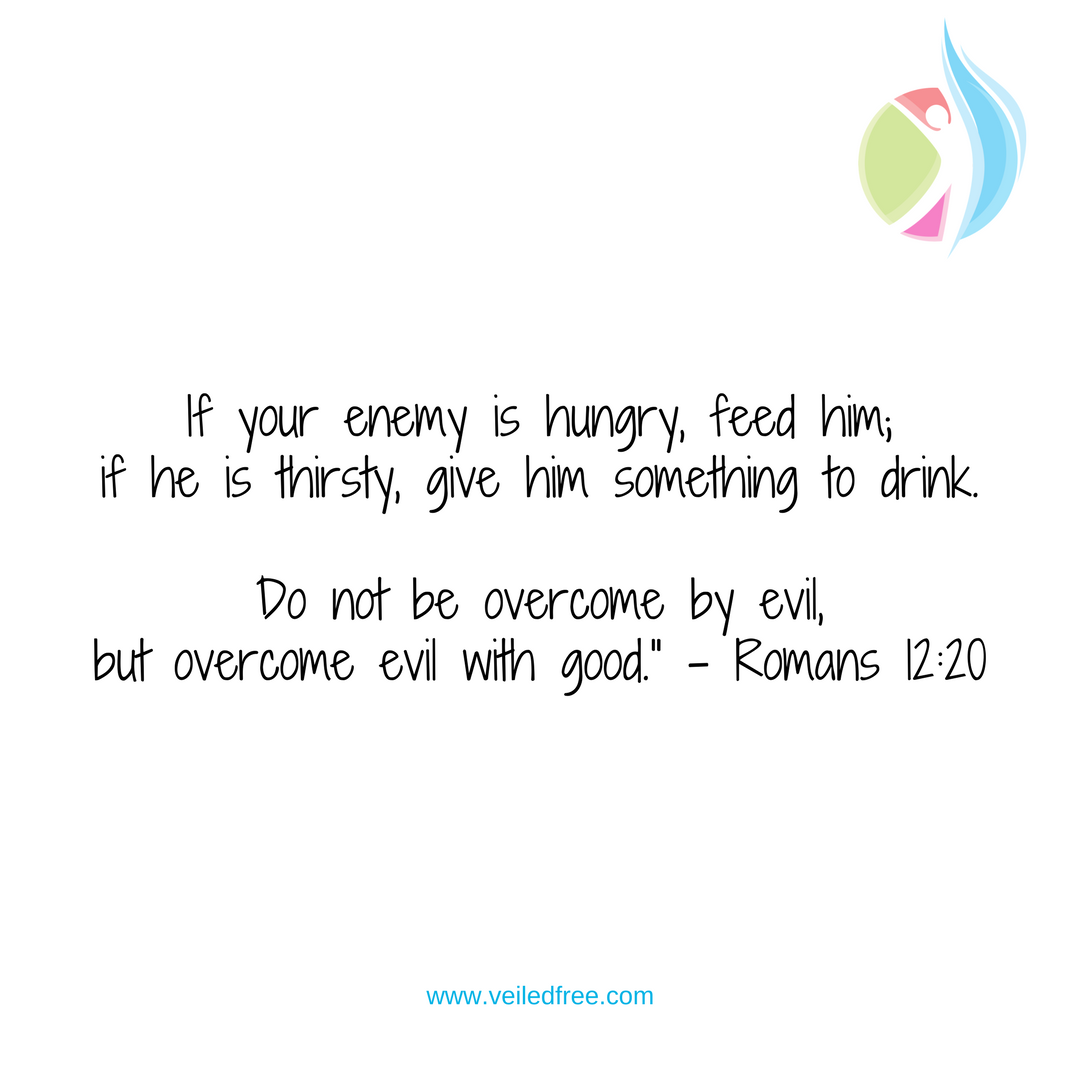
What’s Your Love Style + How It Impacts Your Relationships
Sep 1, 2018
I was first introduced to this idea of a love style from my ex boyfriend John, ironically.
He suggested that I read this book his counselor recommended, because according to him “the problems in our relationship all made so much sense!”
He then expressed that he had the “avoider love style”
….which is why he often shut down or left while we were trying to resolve conflict.

Naturally, I was curious to see which “love style” I had…. so I did a ton of research and found out there are four main love styles.
Paul, my husband, confirmed this book is also what he uses in his counseling practice so I decided to share this wealth of information with you.

I’ll break the love styles down below so you can decide which one fits you.

This is heavy material so PLEASE read with an open and forgiving mindset, and remember, no case is the same.
You may have tendencies toward a certain love style, but they may not sound as extreme as the statements below…. or you may bleed into two different love styles to some degree, as we love to share our love, and spend time with our significant other using toys as the Lush 3 review and others.

Give yourself time to read each bullet point and do some introspection. Trust me, I’ve shed tears over this material multiple times, so don’t feel alone…

The point of this is to become self aware, take responsibility for the things you cannot change, and move forward by making your future better than your past.

Ready?
Okay, here are the four love styles to choose from:
1). The Avoider
- you minimize feelings
- you force a smile when disclosing painful events
- you don’t talk about issues
- forcing emotion out of you is super uncomfortable
- you have a hard time being vulnerable
- you survive or get over problems by not thinking about them, talking about them, and/or trying not to feel them
- when you were in pain, no one inquired about your feelings or comforted you during childhood
- when you’re upset, you start a new project or spend more time at work
Bottom Line:
- Your relationship is probably missing an emotional connection
- You may have a harder time as an adult trying to share with someone, because you’ve always had to push those feelings out, but you need to remember how to need someone and learn how to accept comfort
- Although self sufficiency is admirable (when it hides pain) it chokes the life out of relationships.
2). The Pleaser
- you lived with an overprotective parent during childhood that says (with their words or actions), “Be careful, the world is scary, but you’ll be okay if you’re close to me.”
- you lived with a highly critical parent
- you learned to be careful to avoid criticism
- you try to gain approval or recognition and reduce tension by pleasing rather than cause problems
- as a child, you pleased in response to a parent’s anxiety
- or you pleased in order to manage a parent’s irritability
- you probably developed separation anxiety while at school or out with friends because you were unable to monitor the moods and atmosphere of the home environment while you were gone
- you absorbed a lot of tension and tried to find relief for your own anxiety by making others happy (without realizing that’s what you were doing).
- as a child, you were overly pampered and quickly rescued from distress so you didn’t develop resiliency and perseverance
- as an adult, you are probably sensitive and easily internalize the feelings of others
- you are anxious or upset when those around you are angry or worried
- you read and respond to the distress in others around you
- you seek proximity to others and want to take care of them
- you attempt to fix problems as they arise
- you have constant underlying levels of anxiety but keep them hidden behind a busy lifestyle
- the responsibiiltes of the adult world somewhat overwhelm you but you wouldn’t admit it
- you feel anxiety when your significant other wants time alone with friends
- you crave more connection than others since quiet moments make you uneasy
- you feel quite lost if no one is available for you to take care of because you cannot release your anxiety otherwise
- you feel inadequate to make decisions (fearing the rejection of others and the likelihood of mistakes that were set up by your overprotective parents)
- you’re dependent upon the encouragement and support of others (if you were rescued and pampered as a child)
- you set unrealistic expectations for yourself (because of your critical childhood environment)
Bottom Line:
- As an adult, your underlying motivation for helping and focusing on the needs of your partner is actually to reduce your own anxiety by keeping him or her close and satisfied.
- Learn to set boundaries with your time and actions
- Figure out what your personal needs are so you can ask for help and have your needs met by your significant other
- Take risks even if you expect to be criticized
- Reflect and express your heart (even if you think your partner will be annoyed with you) so that you don’t build resentment over time
3). The Vacillator
- as a child, you experienced only sporadic and unpredictable connection
- you experienced periods of abandonment growing up and were left waiting, hoping for more attention
- your mom or dad’s parenting almost always depended on their own moods or desires so you received a mixed message, “Be available and need me when I feel like parenting, but survive on your own when I don’t.”
- you worried about a parent when they were gone, but felt angry when they tried to return and re-engage
- you felt unwanted to some degree or another
- you have poor self-reflection skills but are sensitive to the emotional temperature of other people and adjust your behavior accordingly
- you idealize new relationships in hopes of satisfying your longing for love and attention
- the chase is the most exciting part of the relationship since intimacy is not yet realized (it holds the hope of a satisfying connection and expectations are high)
- you feel ignored by your significant other due to the responsibilities of real life
- you have a high degree of anger and reactivity toward your partner
- you give mixed signals that reflect your inner conflict and confusion
- you push your partner away and want them to come back
- you devalue the relationship and focus on the hurts and disappointments seeing little good or redeeming value
- you dictate the emotional climate of the home and everyone else adapts to your mood
- you feel that your anger is merited and you get over your outburst but hurt others in the process
- you have a pattern of ending friendships or relationships just because they did something you didn’t like
Bottom Line:
- You have a deep need for consistent, predictable connection but you’ve been “taught” that connection is unpredictable
- You probably assume that your relationship will end due to abandonment and it will hurt deeply
- You’re more prone to anger because you’re quick to feel neglected or unwanted, so you build tension over time
- You might exaggerate your feelings in an attempt to be noticed (because it worked when you were young)
- You probably withdraw and wait to be pursued after an angry outburst
- Any hint of separation or space doesn’t feel good so you probably plunge into relationships with intensity
- Try expressing sadness to your partner not anger. Try to share the hurt underneath the anger…
- Try not to be swept up with this idealized romance so that you can see any potential red flags in your significant other before getting married
- When you feel close in your relationship, trust it to last, even though that’s not your tendency
- Don’t allow past “hurts” to fuel current disappointments
- Understand that no one can provide the consistent, intense connection that you desire, because it’s unrealistic.
- Real love and intimacy is much better so don’t sabotage the connection you have with your partner by pushing them away before they can leave you.
- Don’t pick fights when your significant other is trying to please you
- Lower your expectations and enjoy the moment
- Don’t become threatened, easily hurt, or jealous when your partner directs his or her attention to other friendships or interests
- Try to see the good in the other person instead of idealizing the situation and devaluing the person you love
4). The Chaotic
- you were raised in chaotic environments (your home wasn’t safe and nurturing, but rather destructive and dangerous)
- your parents struggled with addictions, mental illness, or were absent or abusive
- you might have been afraid to maintain eye contact with your parents or constantly wishing you could disappear
- you dealt with extreme level of tension and stress and either became extremely aggressive or extremely passive
- you learned that the period of calm was the lull before the storm so even the quiet moments were anxiety producing
- no one taught you how to deal with your feelings or problems so you have a low threshold for stress and poor coping mechanisms as an adult
- to survive your childhood, you learned to cut off your feelings of neediness or vulnerability
- you might have bullied other children, tortured animals or set things on fire to deal with traumatic events (forgive yourself and let go if this is you)
- you may have learned to dissociate or “go somewhere else” in your mind to cope
- you might have had nightmares while sleeping as a child, or lack of focus at school
- now, you either control others or learn to be controlled (you tend to become either a victim or controller)
- (victim) you detach from your distressing feelings and become invisible and you work frantically to avoid conflict and to do what is expected
- you feel powerless to assert yourselves and marry controllers (extreme mood swings feel normal to you)
- you numb your pain with addictions to drugs, alcohol, sex, gambling, food, pornography, etc
Bottom Line:
- Parenting might be overwhelming due to the cries and demands of children which makes you feel frustrated and sometimes outraged
- Try not to react to everything. Learn to have impulse control.
- Cut out the screaming, yelling, throwing things, leaving, revenge and learn to resolve conflict like an adult
- Try counseling or a recovery program at a church
- Try not to date men or women with similar characteristics as your abuser by learning to see red flags and assert yourself by setting boundaries
- Give yourself sympathy for the childhood you experienced
- Don’t provoke your partner – or create chaos – when things are peaceful
- Praise your significant other and ask for praise in return (even though it doesn’t feel normal)
No matter what environment we came from, we have the power to make our situations better. It’s up to us! I love you and I hope you are encouraged, my friend!
If you’re interested in diving deeper into your love style – or how different love style combinations work in marriage – get this book for only $5! It comes with a workbook also!
Drop me a note to tell me how this made you feel. What’s your (or your significant other’s love style)? Did you learn anything?
8 Comments
Comments are closed.

 Mental Health
Mental Health
 Books, Mental Health
Books, Mental Health


Danielle
Great post! I am excited to order this book to learn more!
VeiledFree
Yes, please read the book because this info taken out of context – and with no further help or explanation on how to move forward – could be overwhelming! Thank you for stopping by!
Brittany Norvill
Great post! Very interesting, and enjoyed reading.
VeiledFree
I’m so glad you enjoyed this post. Thank you for stopping by and commenting, girl!
Bryan
It’s hard to read this and not be overwhelmed. To make matters worse, I tend to magnify the negative and ignore the reassuring. But I know in my heart that this can be a blueprint to being better person in the life of those I love. I know I’m not capable of addressing all of my shortcomings at once, so I take one bite at a time. Slow progress is better than stagnation. Be kind to yourself. You are only human. Love yourself and be patient as you work through your shortcomings.
VeiledFree
I love this comment so much – don’t be overwhelmed my friend. We are all a work in progress and admitting that is the first step to lifelong change!
Ruby McCune
I am the pleaser! Scary but true! By God’s grace, I’m a work in progress everyday!
VeiledFree
That’s okay, friend! If you haven’t read the book, I recommend it! It goes a lot more in depth about how to improve!